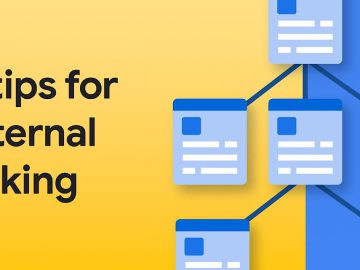Boost your site’s health and climb the SERPs with these tools!
SEO marketing is more than just a game of wit and ambition. You need robust tools that diagnose site issues, track performance metrics, suggest improvements and automate the many tasks you otherwise would perform manually each day.
On-page SEO, which we’ll focus on here, deals with the elements of your website, such as content quality, keywords, meta tags, headings and URLs. This is different from off-page SEO, which involves external factors like social media presence and influencer collaborations that also influence your site’s ranking on search engine result pages (SERPs).
In this article, let’s look at five essential on-page SEO tools that can take your SEO game to the next level by optimizing its fundamental elements. They’ll help ensure that your SEO strategy is as sharp and effective as possible.
1. Google Search Console
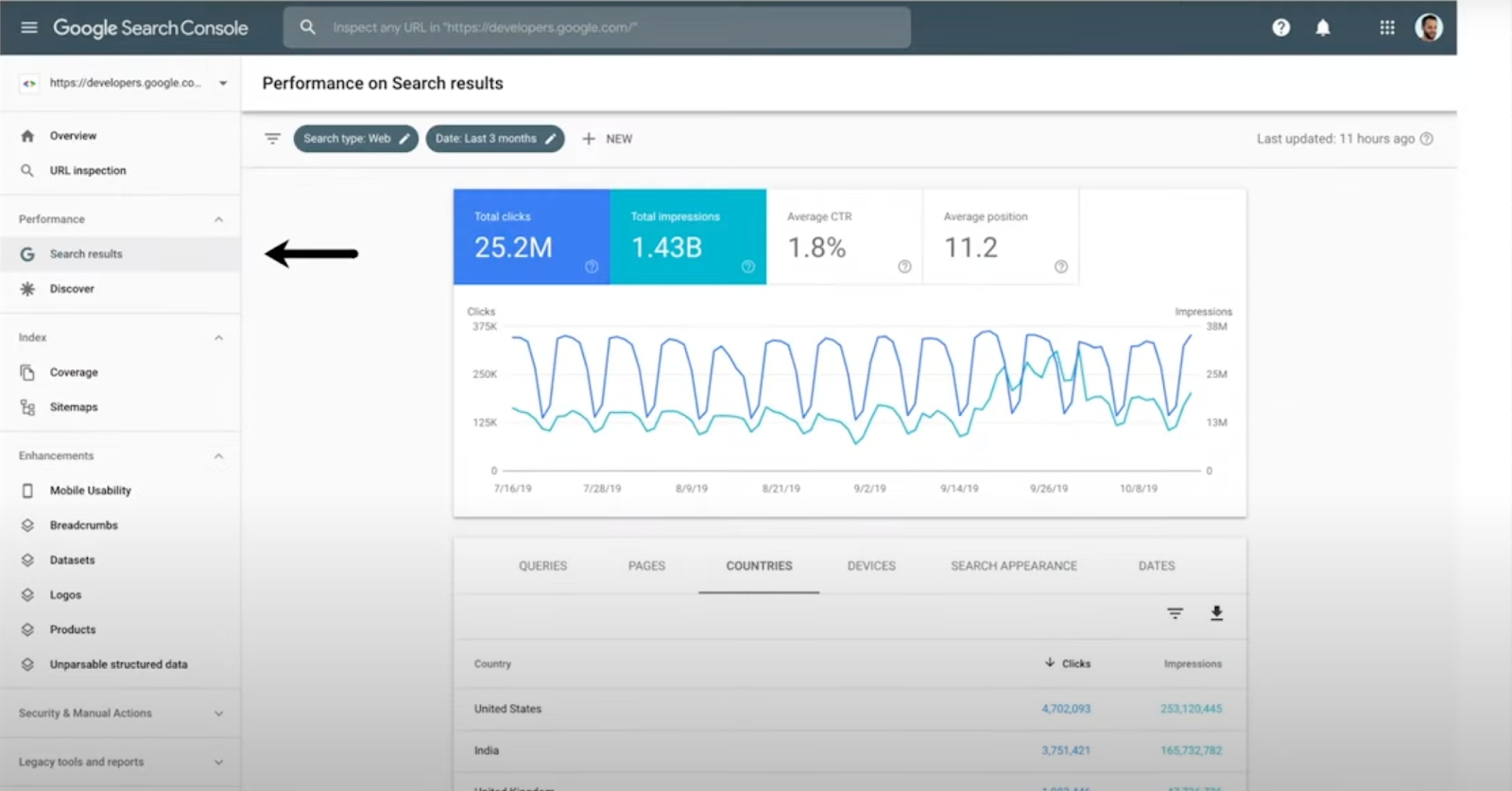
Screenshot from Google Search Central’s YouTube video
Google Search Console, formerly known as Webmaster Tools, is a free powerhouse tool for website optimization, allowing you to check your site’s search performance and overall SEO health. With this tool, you can track search traffic, understand user queries and optimize content based on what drives traffic. Insights into these aspects can help you refine your on-page SEO strategies, spot underperforming pages, resolve technical glitches and ensure your site is crawled and indexed smoothly by search engines.
While Google Search Console offers valuable insights, it operates in a vacuum without competitor data. For a holistic on-page SEO strategy, you might want to pair it with other tools that can fill in these gaps by providing competitive insights.
Key features:
- Analyze impressions, clicks and your position in Google Search
- Test and improve mobile usability
- Submit sitemaps for better crawling
- Get email alerts to promptly fix emerging issues
Price: Free
2. Semrush
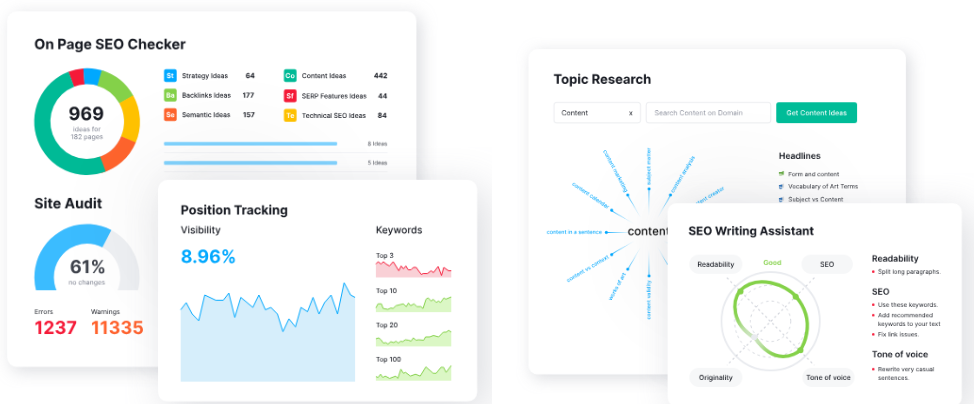
Images from Semrush’s website
Semrush helps you fine-tune on-page optimization and improves your website’s health. Beyond its reputation as an on-page SEO checker, Semrush helps users craft high-performing web pages that deliver a seamless user experience.
It offers detailed insights into crawlability, site speed and mobile-friendliness, which are crucial for ranking higher on Google. Plus, it provides an in-depth competitive analysis and strategic recommendations. This includes semantic suggestions that help you expand your content with relevant keywords and topics to enhance your site’s authority.
Key features:
- Tailor content with SEO Content Templates
- Customize how Semrush bot crawls your site
- Analyze log files to understand search engine behavior
Price: Free trial for seven days; US$129.95/month for the Pro version
3. Screaming Frog
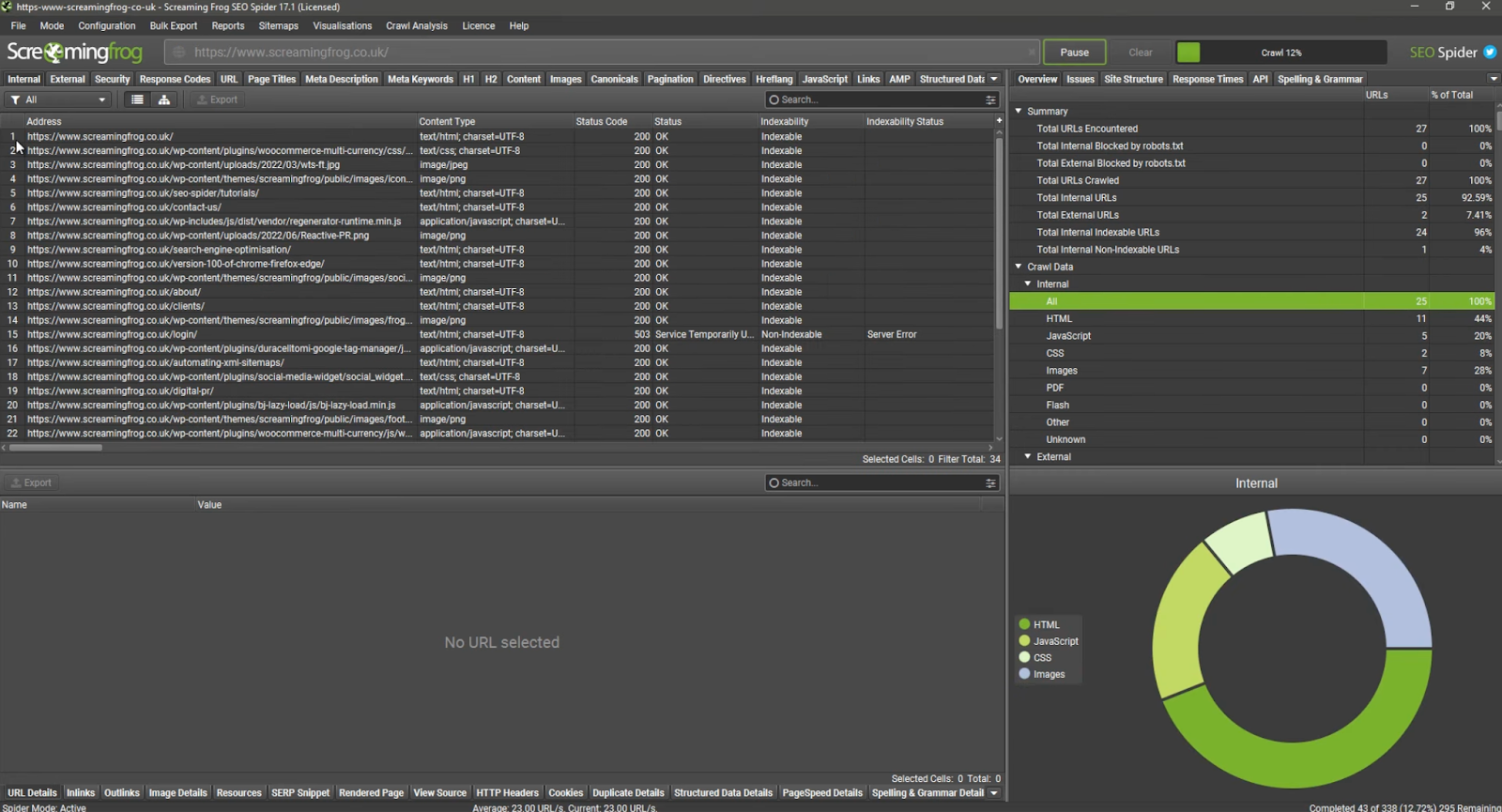
Screenshot from Screaming Frog’s YouTube video
Known for its thoroughness, Screaming Frog scours your website to ensure everything is in top shape for search engine indexing. It’s perfect for detailed health checks, identifying broken links, auditing redirects and reviewing page titles and metadata.
Whether you’re managing a small blog or a large e-commerce site, Screaming Frog can handle it. This tool allows for swift SEO audits and provides a real-time view, analysis and filtering of data via its intuitive interface. This streamlines the process, saving you the hassle of manually inspecting each page for errors.
Key features:
- Google Analytics integration to analyze your traffic data
- Interactive website visualizations to understand your site’s architecture and improve navigation and indexing
- Identify duplicate content to enhance SEO performance
Price: Free version available; US$259 per user/year for the paid version
4. Crazy Egg

Image from Crazy Egg’s website
Instead of diving into traditional SEO metrics, Crazy Egg takes a unique approach by offering insightful heatmaps that focus on user behavior and how they interact with your website. You can gain visual insight into where visitors’ eyes linger, which areas they interact with the most and where they lose interest. This feedback pinpoints exactly what’s working on your pages and what needs tweaking.
Crazy Egg has also got you covered if you aim to boost your conversions. It not only tracks website traffic and on-page errors but also facilitates surveys, optimizes call-to-actions (CTAs) and simplifies the process of conducting A/B testing (i.e. testing different versions of your pages to see what performs best).
Key features:
- Confetti reports to track overall clicks across your webpage with filter options
- Overlay reports to track mouse clicks on specific elements like links and buttons
- Block certain IP addresses, such as those from your own company, to focus on genuine guest traffic
Price: Free trial for 30 days; subscription starting at US$99/month thereafter
5. GTmetrix
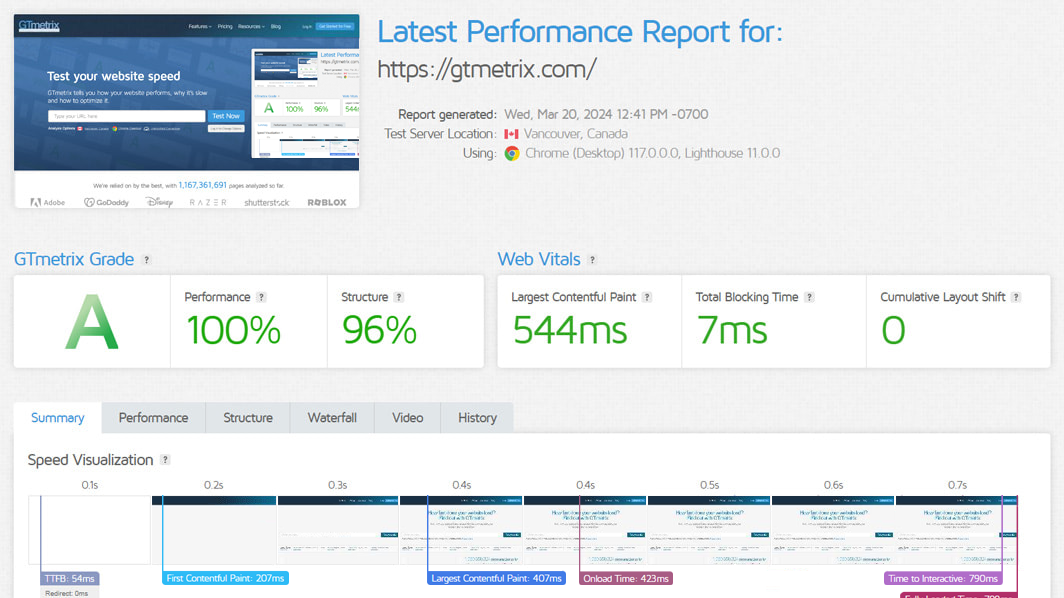
Image from GTmetrix’website
GTmetrix delivers critical insights into your website’s performance, emphasizing page load speed and user experience. Its waterfall charts help visualize how site components load, pointing out the areas that may be causing delays.
This tool goes beyond simple speed tests by assessing page load times, total page size and the number of requests. It also generates comprehensive reports that highlight areas for improvement and gives recommendations on how to optimize images, reduce response times and make the most of browser caching (i.e. it allows a website to temporarily store data on a visitor’s device, so that it doesn’t need to be reloaded fully on each visit, thereby speeding up loading times for returning visitors).
Key features:
- Evaluate your website’s performance from more than 15 locations worldwide
- Monitor website performance with options to track it daily, weekly or monthly
- Sends email alerts on performance issues as they arise
Price: Free trial available; subscription starts at US$4.25/month
Conclusion
Choosing the right on-page SEO tools can be overwhelming and cumbersome. Each tool markets itself as the best, but the key is to define your specific needs and select a tool that aligns with your SEO strategy. The right tools will not only optimize your website but also improve your rankings and help cleanse ineffective content, ensuring long-term benefits for a well-optimized site.
We hope this guide has equipped you with the knowledge to choose which SEO tools can best meet your needs, cut through the noise and focus on what truly matters for your site’s success.
Also read:
Header Image from Freepik




